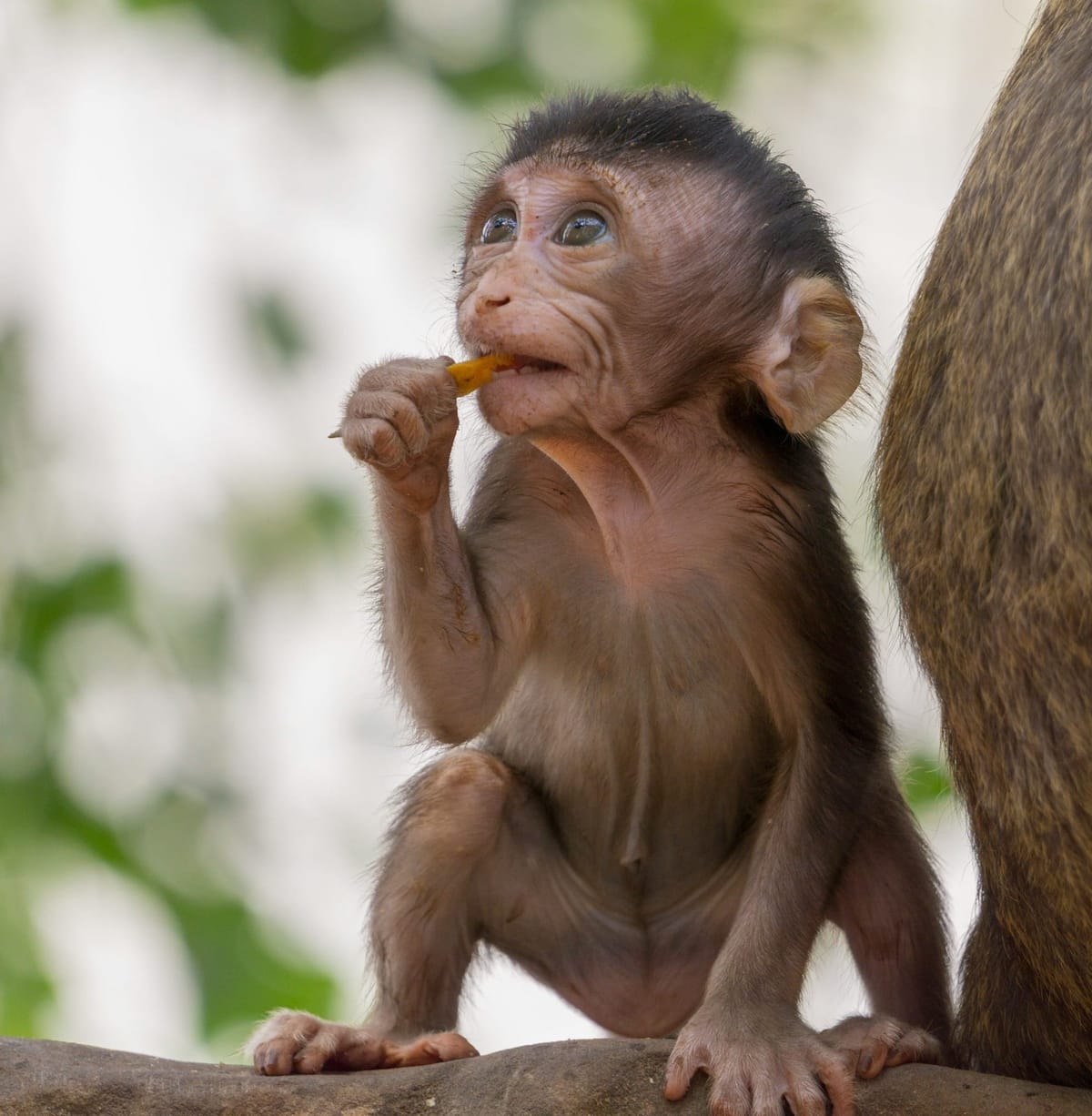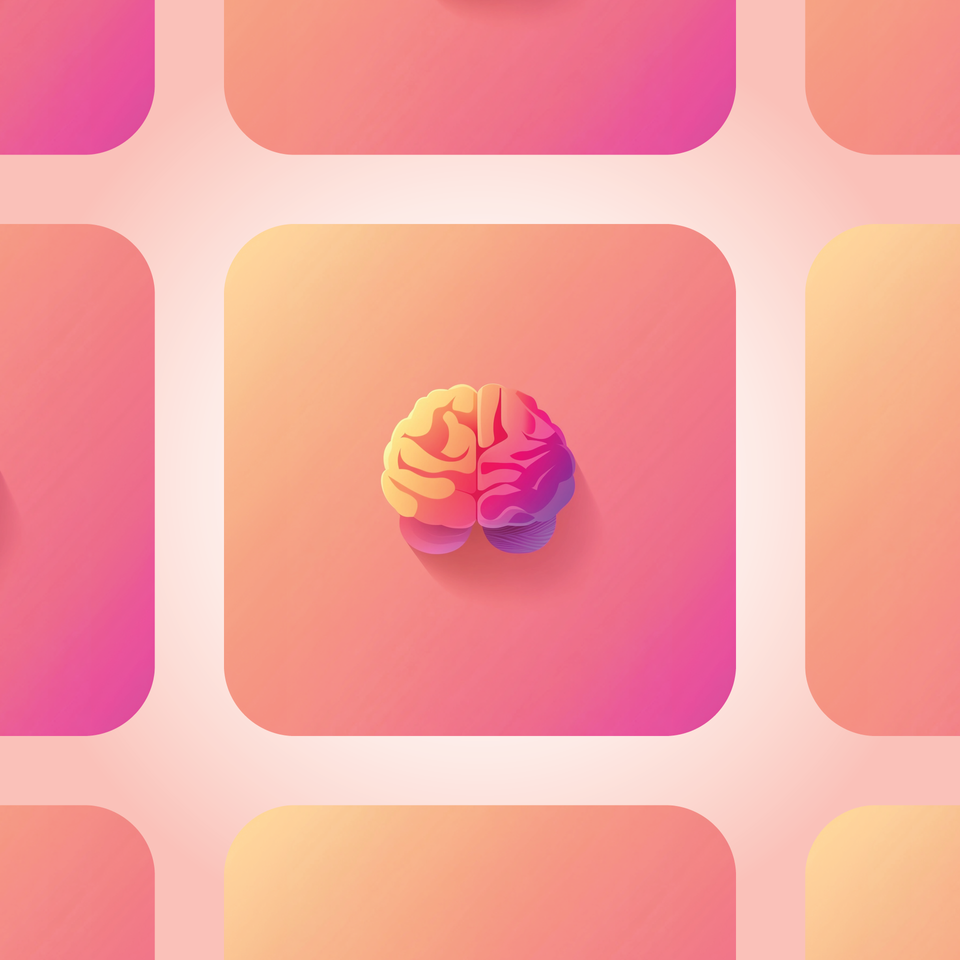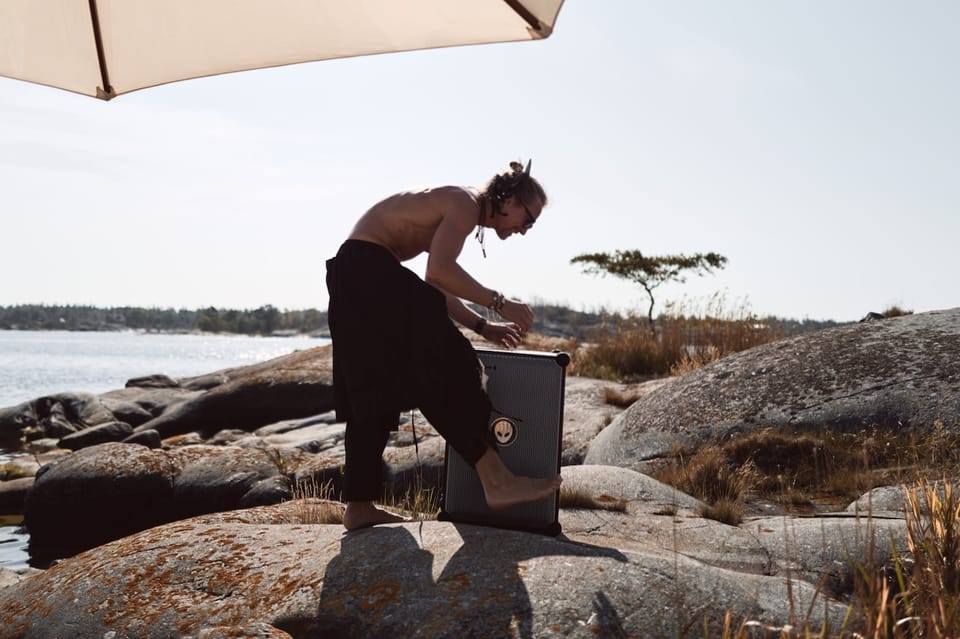Monkey, Man, and The Meaning of Life
Let's go down the rabbit hole of entropy, sex, sugar, ice bathing, monkey poison, and a single-burner lady at a lawyer's party. Let's go!

Monkey Brain vs. Man Brain
The brain may be complex, but a helpful simplification can be to think of it as two brains: the old monkey brain and the new human brain.
The brain evolved from the back and forward. On a good day, you can think of it as the monkey brain in the back seat and the human brain in the driver's seat.
The monkey brain wants safety, sugar, sex, resources, recognition, and status. The human brain wants meaning. So, what feels meaningful to the human brain?
Entropy
Perhaps a good start to figuring out the meaning of life is to figure out what life is. To do that, we first need to talk about entropy. We're going to use this concept a bit here, so bear with me:
Entropy is a measure of disorder and randomness. The second law of thermodynamics states that in an isolated system (which the universe may or may not be), entropy tends to increase over time, leading to the concept of the universe's "heat death," where all energy is evenly distributed and no more work can be done.
At least since the Big Bang, the universe seems to naturally move towards higher entropy, so you could say that the universe gradually decays into disorder and randomness. It is much like your room that never magically cleans itself but instead seems to randomize itself or a swimming pool where body-tempered... water... slowly gets evenly dispersed in the pool... while I quickly get out of it... if given due warning... sorry, where was I?
Anyway, that's entropy. So, moving a system in the opposite direction, towards lower entropy, can be done but requires energy, as in cleaning the room, or building a civilization, both of which can be a pain in the ass to do but generally seem to lead to meaningful outcomes, such as a happy partner in the former case or the current state of humanity in the latter.
Entropy can also be applied to information theory, where you can define information content in an event as the inverse of the probability of said event. An example would be me asking you to find the tipsy man in the black suit at the tail end of a lawyer's party. This individual could be challenging to single out as the probability of a participant displaying those specific characteristics is significant. Pardon the prejudice.
On the other hand, if I did ask you to find the mushroomed-out raver-girl in the burner outfit at the same lawyer party, there would be little doubt who I mean. Low probability gives high information content.
To Live is To Move Towards Lower Entropy
So, the universe moves towards higher entropy, but what about life? On an individual scale, you are born quite basic, relatively speaking, compared to where you are at the peak of your life when you've gotten your Ph.D., learned to negotiate babysitting with your spouse, and mastered the art of paddle. You move towards higher complexity, more sophistication, more order, and higher information content – in other words, you move towards lower entropy.
In everyday language, we say that we evolve. At some point in life, you reach an evolutionary peak and start to degrade towards lower sophistication, less order, and lower information content. I sometimes use a contemporary American politician here as an example, but let's stay off the politics for now.
Eventually, you die, and your remaining meat vehicle decays further into essential elements and returns to the universe.
Life Sucks, Living is Great
We could say that the word "life" is not particularly good, as it's a noun. Life doesn't exist in the noun form. Life is a verb, something you do, a process, a vector with a speed and a direction towards evolution and lower entropy until it reaches its inflection point and starts its descent in the opposite direction towards higher entropy and death.
In short – when you stop evolving, you start dying.
The Meaning of Life
If I were to describe life in one word, it would be evolution. Or expressed in verb form: Living is to evolve.
I have two more words for you to describe living. You could say that they are subcategories of evolving, but valuable nonetheless:
Sometimes, your evolution spawns creations that can leave your physical body – like an idea, a book, a tool, a song, or a painting. Those are still part of your evolution, but have a specific word to describe it: creations. And this is the second part of the meaning of life – to create.
A single individual cannot create some creations. New individuals would be one example of such a creation, but skyscrapers, computers, airplanes, or cities would be others. And there is only one aspect of that co-creation that you have agency over: what you give. So this is the third and final part of the meaning of life – to give.
And here we are, with a complete description of the meaning of life:
To evolve, to create, and to give.
When you engage in these processes, life feels meaningful.
It also works on different scales, like a fractal, where life for the individual, the couple, the village, the city, the country, the planet, and most likely, the universe is alive, or more precisely, becomes more alive when it does those three things. You could argue that unless you become more alive, you are dying. There is no equilibrium of life. In other words, when you stop evolving, you start dying.
The Battle Between Monkey and Man
Does all this sound obvious to you? Good. Then you're listening to your human brain. Because your monkey brain feels otherwise. Evolution is almost always found in the direction of hardship, challenge, and pain. (Pain, by the way, is separate from suffering, which is an interpretation of pain. You can choose an alternate interpretation). Your monkey brain doesn't like when you take that path. You can think of it like a compass where meaning can be found due north, towards hardship, and monkey pleasures can be found towards the warm and cozy south. I'm sure you can imagine it better than AI could:
Money is Monkey Poison
But before you say, "Hey! What's wrong with some cocktails and beach weather!" let me offer you this perspective:
Have we not all seen examples of people becoming super successful only to take advice from their monkey minds on what to do with their success? How about going to the Riviera, getting on an expensive yacht, drinking Champagne, doing coke with an army of gorgeous ladies (sorry for the prejudice again, but gender equality hasn't quite reached the monkies yet), and just overall taking part in limitless consumption. Suddenly, you don't evolve, don't create, or give, and life eventually starts to feel devoid of meaning. When your meters run too low on these metrics, the monkey tries to fill that hole with more consumption, and one day, you die from an overdose of speed or a handful of sleeping pills. Dark. I know. Sorry.
Child stars are, by the way, a sad but excellent example of this. In happiness research, they are often cited as the most unhappy cohort of people. Think about it: How easy is it to evolve from being a super celebrity at age 12?
It's fine to indulge occasionally, but overall, your quality of life over time depends on starving the monkey and feeding the man.
Starve the Monkey and Feed The Man
Starving the monkey and feeding the man is something you can train. The best way I've found so far is ice bathing. Your monkey certainly doesn't want to get in that cold water.
And here is where the analogy from the beginning of this text makes its comeback. Luckily, the monkey was in the back seat, right? It will do everything in its power to convince you otherwise, but it depends on using your fantasy to grab the wheel. It's dependent on you fantasizing about how cold the water will be in the future to stop you. The antidote to this is to be present in the now because you can't be in the now and fantasize about the future simultaneously.
The concept of pain versus suffering also returns here because the electrical signals from your nerve endings signaling cold must be interpreted to mean something to you, specifically, suffering. The same thing here: if you concentrate on the signal, you can't also concentrate on the interpretation. Again, the secret is to be focused on the present. This is counterintuitive to most people I've talked to, as they try to distract themselves when going in the water. Still, that distraction is precisely the crack the monkey needs to make its way into your consciousness, make you afraid, make you panic, and make you suffer.
I will write a separate chapter on ice bathing, but it is surprisingly relevant to the meaning of life, is it not?


